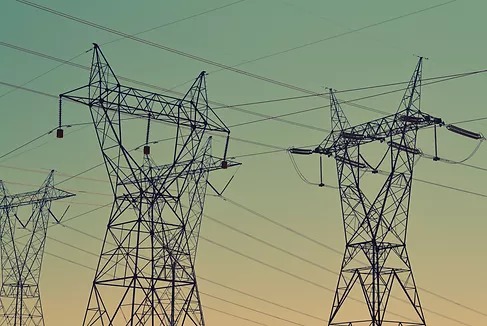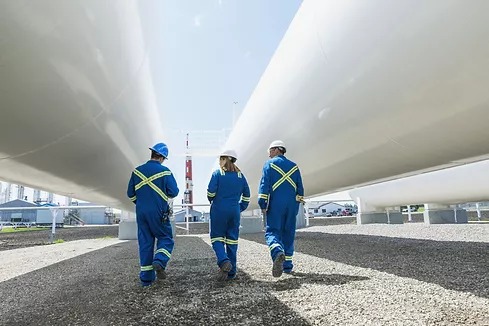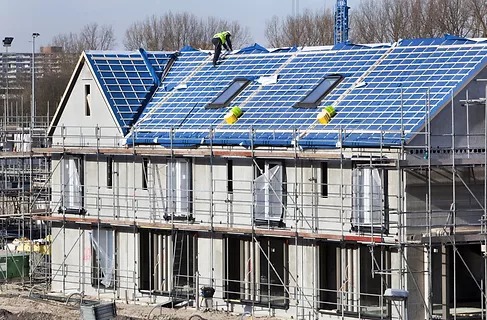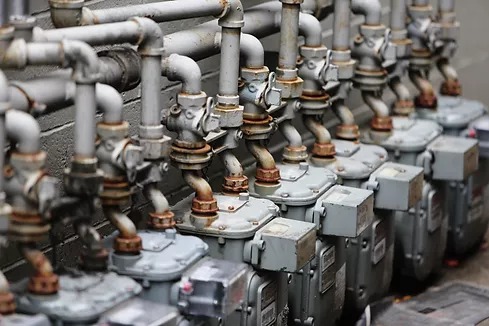Infrastructure
Industries
1. Electric Utilities & Power Generators
2. Engineering & Construction Services
3. Gas Utilities & Distributors
4. Home Builders
5. Real Estate
6. Real Estate Services
7. Waste Management
8. Water Utilities & Services
Range of Infrastructure Risks
1. Air Quality
2. Workforce Health, Safety, and Well-Being
3. Labour Relations
4. Water Management
5. Waste Management
6. Greenhouse Gas Emissions
7. End-Use Efficiency and Demand
8. Grid Resiliency
9. Supply Chain Management

Electric Utilities & Power Generators
The regulated market generally consists of companies that own and operate every step of the process from generation to retail sale, while the deregulated market is split between groups working on generation and groups working on distribution. The companies in this industry must be reliable and cost-friendly to customers while also being safe for people and the environment. There are different sources of energy for these companies, some of which are renewable such as hydropower, solar, and wind power.

Engineering & Construction Services
The engineering services offered include providing specialized design and feasibility studies of projects that are being implemented. Finally, the infrastructure construction segment of the industry specializes in the designing and building of dams, gas pipelines, water networks, and power plants. Many companies in this industry specialize in multiple of the listed sections of industry, and many operations are held globally with customers in the private and public sector.

Gas Utilities & Distributors
The Gas Utilities and Distributors industry consists of gas distribution companies that operate local, low-pressure pipes to transfer natural gas to users, and gas marketing companies that act as brokers gathering and delivering natural gas in the quantities that fit various customer needs. Both natural and propane gas are used for heating, but this industry deals with a much higher amount of natural gas than propane gas. In a regulated market companies must fix their prices to the regulated amount, but they are offered a monopoly over the delivery of natural gas.
In deregulated markets there is a strong divide between distribution and marketing as they are legally separated. The customer is able to choose which company they would like to buy their gas from and that company must deliver all gas equitably for a fixed fee. This industry is in charge of delivering reliable and safe gas at a low-cost both fiscally and environmentally.

Home Builders
Companies that develop homes and residential communities through land acquisition, site preparation, home construction, and house sales are a part of the Home Builders industry. The companies within this industry plan out communities and choose what house styles they wish to include in the communities, typically they develop single-family homes.
Companies can also plan and develop condominiums, townhomes, or multi-family homes. This industry is rather fragmented with variation in company sizes, structures, and locations. Many of the large companies tend to work on multiple varying development types.

Real Estate
The Real Estate industry takes care of the management and operations of properties so that clients have a more simplified interaction with the assets. REITs can either have a concentration in a specific property type, or work with a diverse list of properties.

Real Estate Services
Most companies within this industry also aid with facilitating sales and leasing contracts; specialized services that are also often provided include advisory and appraisals. Through their appraisal services, the companies in this industry are able to play a big part in the real estate value chain which goes to further impact the global economy and housing market.

Waste Management
The Waste Management industry is made of companies that collect, store, and dispose of industrial, residential, and commercial waste. The types of waste collected vary from client, but tend to include hazardous waste, recyclables, municipal solid waste, and compostables. Many of the large companies in this industry provide multiple services, including waste collecting, landfilling, and recycling, but some companies specialize in specific types of hazardous waste, such as medical waste. There are also some companies in the industry that provide consulting services for waste removal and environmental impact, and there is a segment of the industry specifically dedicated to turning waste into energy.

